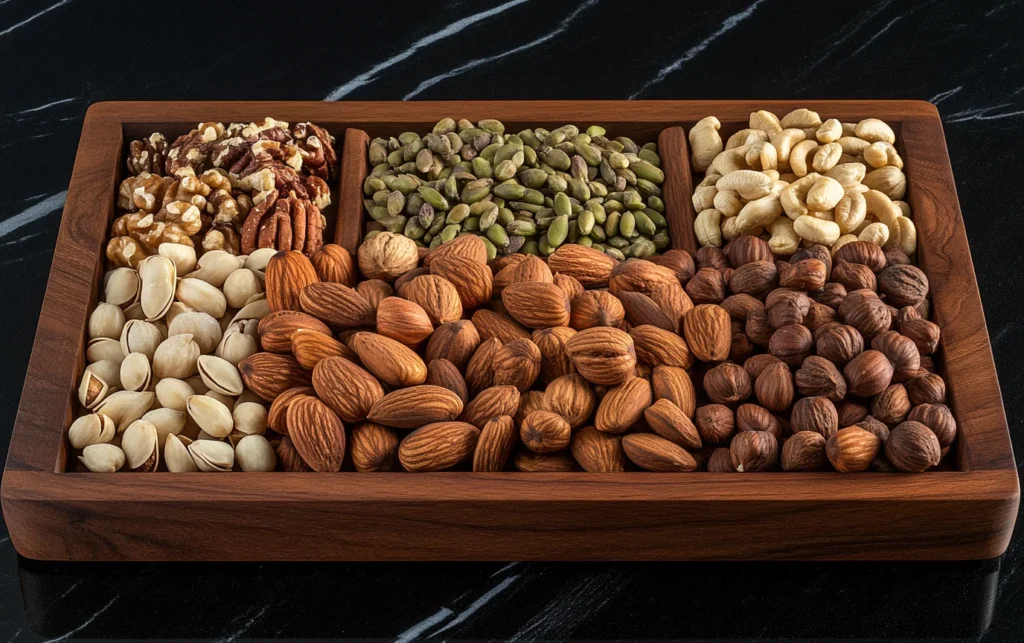Nuts are not only a delicious snack but also a treasure trove of nutrients essential for maintaining health. With the wide variety of nuts available, each type offers unique benefits. Let’s explore the most nutritious nuts and how they contribute to our well-being.
1. Almonds
Almonds are among the most popular nuts, rich in vitamin E, B vitamins, magnesium, iron, and fiber. They help reduce bad cholesterol and support stable blood sugar levels. Almonds are also packed with antioxidants, which protect cells from free radicals. Additionally, they promote satiety, making them an excellent choice for a healthy snack.
2. Walnuts
Walnuts are a powerhouse of omega-3 fatty acids, crucial for heart and brain health. They help reduce inflammation in the body and enhance memory and cognitive function. Walnuts are also rich in antioxidants and anti-inflammatory properties, potentially lowering the risk of cardiovascular diseases and some types of cancer.
3. Pistachios
Pistachios are both tasty and nutritious, loaded with vitamin B6, potassium, magnesium, and antioxidants. They improve cholesterol levels and assist in weight management by promoting fullness despite their caloric density. Pistachios also support eye health and strengthen the immune system.
4. Cashews
Cashews are an excellent source of magnesium, which is essential for bone health and energy production. They contain healthy fats, proteins, and fiber, contributing to heart health. The presence of phytosterols in cashews aids in reducing bad cholesterol levels.
5. Brazil Nuts
Brazil nuts are one of the richest sources of selenium, a mineral vital for thyroid function and immune system support. Selenium also protects cells from oxidative stress and can enhance reproductive health. Just two Brazil nuts a day provide the recommended daily selenium intake.
6. Pecans
Pecans are both a delicacy and a nutritious choice. They are high in antioxidants, vitamin E, and fiber. Pecans help lower cholesterol levels, support heart health, and boost energy. They also aid in normalizing metabolism.
7. Peanuts
Technically a legume, peanuts are often grouped with nuts due to their similar nutritional profile. They are rich in protein, healthy fats, and B vitamins. Peanuts can help regulate blood sugar levels and provide a great energy source. However, it’s important to choose natural peanut products without added sugar or salt.
Nuts are versatile and can enhance a variety of dishes, from salads to baked goods. Regular consumption of nuts can significantly improve overall health, maintain normal cholesterol levels, support the cardiovascular system, and boost energy.
Moderation is Key
Nuts are calorie-dense, so portion control is essential. A daily handful (about 30 grams) is the optimal serving to enjoy their benefits without risking weight gain.
Incorporating a variety of nuts into your diet is a simple and delicious way to ensure your body receives a wide range of essential nutrients.

